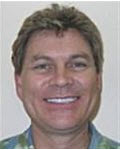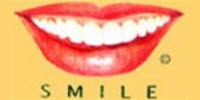Call (925) 820-6623
Dental Fees
Fortunately, in these times, a lot of patients have dental insurance. Insurance is, on the face of it, a good thing. It minimizes out-of-pocket expenses for treatment and encourages people to keep up with the dental care they need. But most dental insurance plans do not pay 100%. There simply is no perfect insurance plan.
Part of the problem is what's called "usual and customary fees." Insurers have come up with a fee structure intended to reflect the "average" cost of "average" dental care. Urban residents may be allowed different compensation than people who live in rural areas. Reimbursement for a crown may be a certain percentage of the actual cost (the dentist's charge to you), and another percentage for a cleaning. Patients are sometimes puzzled at the discrepancy between insurer reimbursement and actual dental fees.
Of course your dentist can't dictate the amount your dental insurance plan decides is "average." And they don't ask your dentist what cost he or she thinks is fair. The dilemma is this: your dentist can't, in good conscience, recommend less than quality dentistry, even though your insurer may impose an unreasonable ceiling on treatment. It's a rock and a hard place.
For this reason, you should take objections directly to the insurer or compare dental plans with your employer. If enough people make enough noise, the reimbursement picture might improve.
Ask your dentist to sit down with you and go over your dental plan and your dental financing options. He or she will try to make your dental insurance plan work to your advantage. Your dentist cares about your finances, and your health.
Call for an appointment:
(925) 820-6623
Make an Appointment
Don't Forget to Floss!
Clean between teeth daily with floss or an interdental cleaner. Decay-causing bacteria can hid between teeth where toothbrush bristles can't reach. Flossing helps remove plaque and food particles from between teeth and under the gum line.
Visit Our Office Regularly!
Take good care of your smile. Remember to visit the dentist regularly for professional cleanings and oral exams.
Mouthwash Is Important, Too!
Brushing and flossing may not be enough. The ADA now recommends using an antimicrobial mouthwash to reduce plaque and prevent gingivitis.




